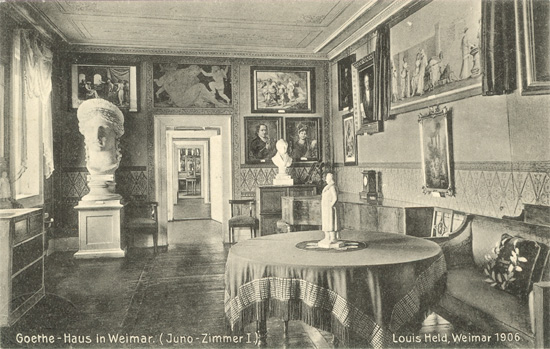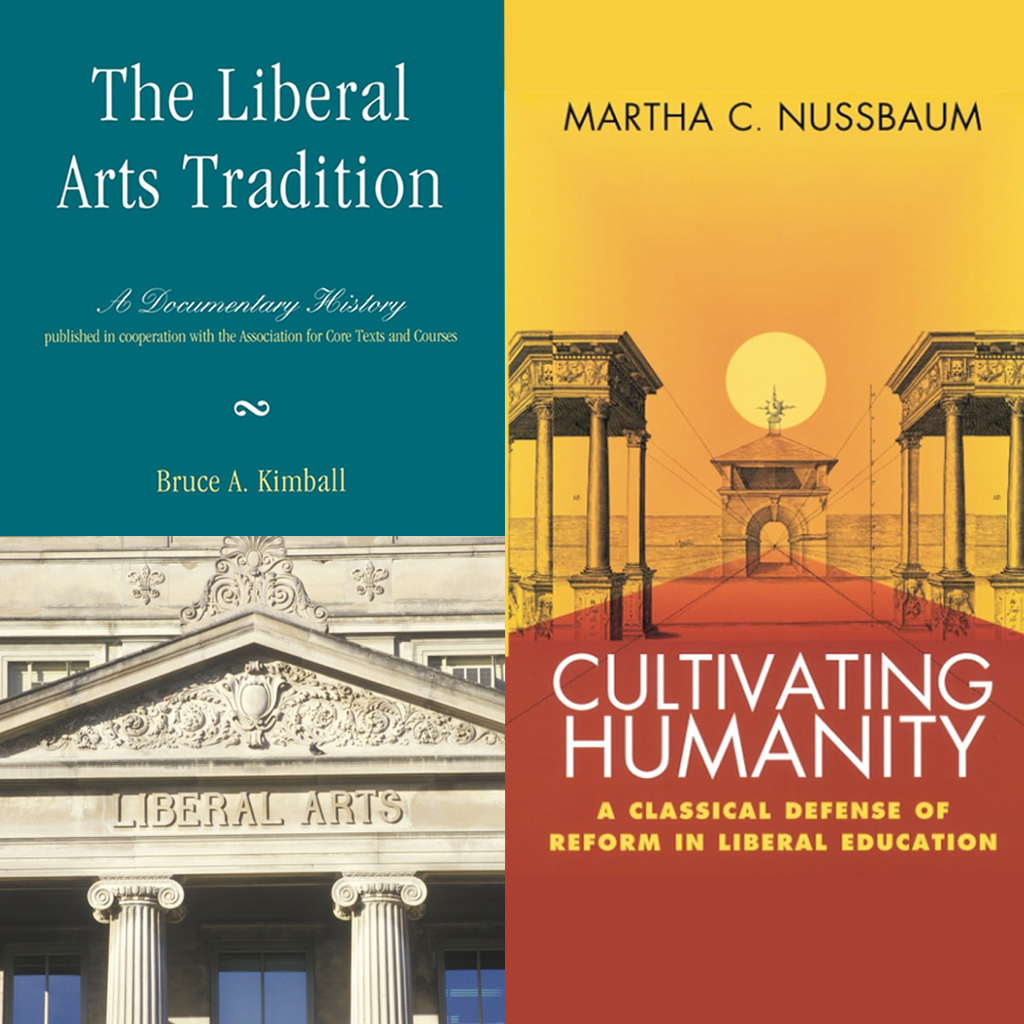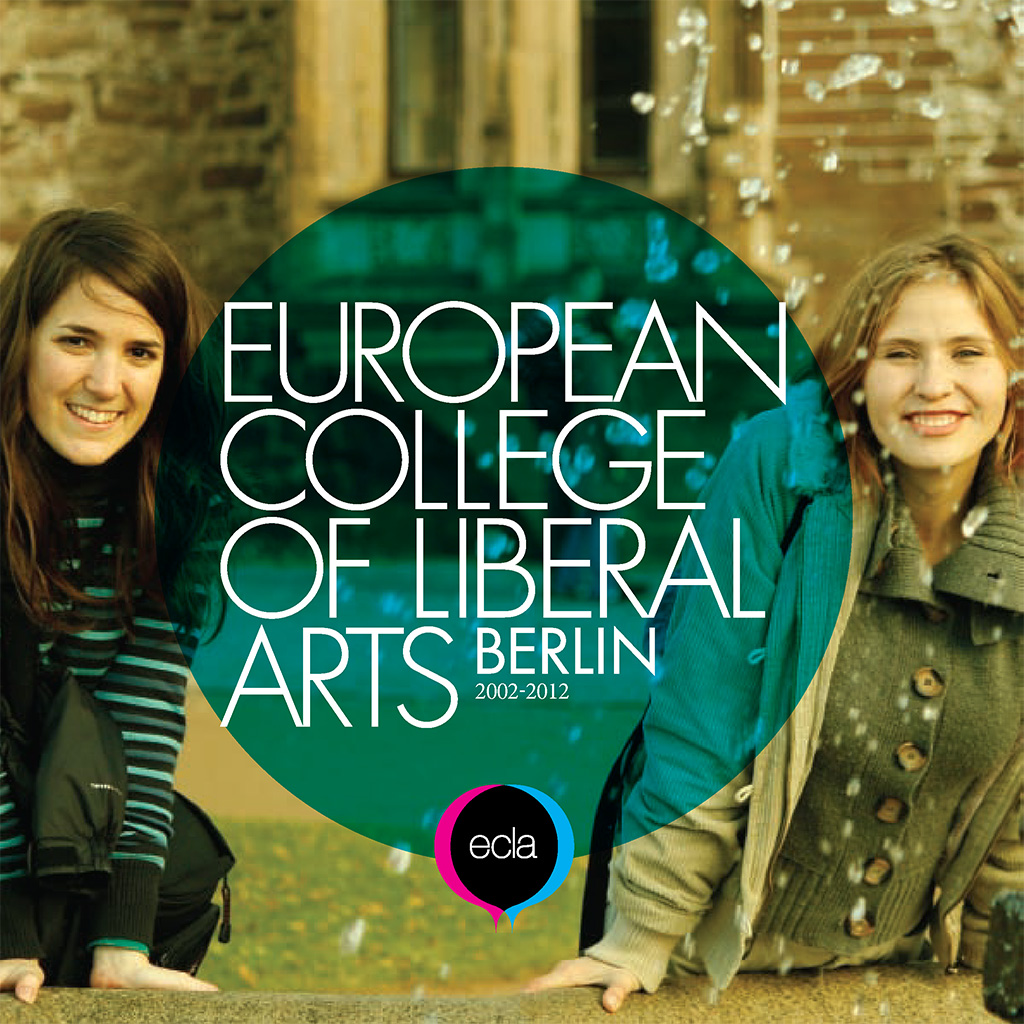The Center for Liberal Arts, Aesthetic Education, and the Environment is dedicated to curricular development, teaching and research in the service of generalist liberal education. Our specific focus on aesthetic education is grounded in the belief that meaningful conversation about works of visual art (including film) can play a pivotal role in the critical study of a broad range of topics traditionally considered essential to a well-rounded liberal education. We are particularly interested in projects that explore how art can serve as a vehicle for addressing questions of environmental sustainability, as well as an instrument for fostering change in how human beings relate to their natural environment.
Discovering new forms of aesthetic education is an experimental process, and the Center welcomes all proposals for testing and exploring innovative pedagogical activities.
AESTHETIC EDUCATION: Meaning, Self-knowledge, and Embodiment

“As for me, I certainly consider a great appreciation of painting to be the best indication of a most perfect mind, even though it happens that this art is pleasing to the uneducated as to the educated. It occurs rarely in any other art that what delights the experienced also moves the inexperienced.”
(Leon Battista Alberti: On Painting)
The encounter with beauty has been regarded in the West as essential to shaping the human soul since at least the time of Plato. The Center’s work builds on this tradition to advocate for aesthetic education as a path to critical thinking – one that also inspires deeper forms of self-knowledge and a heightened awareness of the material world.
Meaning
Artworks when engaged with in critical conversation as meaningful objects can teach us to regard the world in all its aspects as calling for deeper attention and understanding.
Self-knowledge
Our responses to art are deeply personal. Such conversations allow us to share and better understand our own deepest concerns, leading to enhanced self-knowledge.
Embodiment
In addition to enhancing the intensity of our presence to each other in conversation, works of art also heighten our awareness of ourselves as embodied beings. They do so primarily by invoking aspects of the material world in and through representation, and adressing us by means of their material media.
The Center’s overall mission is to promote the relevance and value of art (works of visual art, architecture, and film) to all forms of education in critical thinking.
“…the relation of language to painting is an infinite relation. … if one wishes to keep the relation of language to vision open, if one wishes to treat their incompatibility as a starting-point for speech instead of as an obstacle to be avoided, so as to stay as close as possible to both, then one must … preserve the infinity of the task. It is perhaps through the medium of this grey, anonymous language, always over-meticulous and repetitive because too broad, that the painting may, little by little, release its illumination.”
Michel Foucault
“Among the formative arts I would give the palm to painting: partly because it is the art of design and, as such, the groundwork of all the other formative arts; partly because it can penetrate much further into the region of ideas, and in conformity with them give a greater extension to the field of intuition that it is open to the others to do.
Immanuel Kant
“The question within painting is not how – by some innocence of the eye that rules out mental activity – to locate the `given’ in experience but the much subtler question of how painting can achieve a triumphant humility in experience. Humility of this sort cannot be a passive virtue.”
Andrew Harrison
“Within the history of art it is not hard to perceive a pervasive philosophical inquiry explored as it were in practice. Though it relates intimately to standard philosophical theorizing, it does not quite parallel it. Very skillful picture-making was in the sixteenth century as startling a new science as computers are now.”
Andrew Harrison
“It is not clear that within the history of visual art the idea of innocence-in-experience is taken for granted, nor even that it is quite what philosophers take it to be. For a different concept of innocence in experience is not that of innocence devoid of interpretation, but rather of someone’s experience uncorrupted by an externally imposed conviction of what it is that experience `ought’ to be, as opposed to how honesty in observation should find it to be.”
Andrew Harrison
“I’ve always felt that painting must awaken something even in the man who doesn’t ordinarily look at pictures, just as in Molière there is always something to make the very intelligent person laugh and also the person who understands nothing. In Shakespeare, too. And in my work, just as in Shakespeare, there are often burlesque things and relatively vulgar things. In that way I reach everybody.”
Pablo Picasso
“There is something of philosophical importance at stake in pictorial achievements even if they are not – just because they are not – philosophy themselves. That is to say, the claim is not that such artworks are works of philosophy, or philosophy manqué, but that they embody a distinct form of aesthetic intelligibility, or an aesthetic way of rendering intelligible and compelling a variety of issues of the deepest importance to philosophy. The stronger claim would be that whatever makes art intelligible is something that is essential to philosophy but that philosophy itself cannot supply; the even stronger claim would be that art renders intelligible what philosophy tries to reveal but does so better.”
Robert Pippin
“There is a singular sense in which the child may peculiarly be said to be the father of the man. In many arts and attainments, the first and last stages of progress, the infancy and the consummation, have many features in common; while the intermediate stages are wholly unlike either and are farthest from the right. […] So it is in many matters of opinion. Our first and last coincide, though on different grounds; it is the middle stage which is farthest from the truth. Childhood often holds a truth with its feeble fingers, which the grasp of manhood cannot retain, which it is the pride of utmost age to recover.”
John Ruskin
“For me the idea of realism in art is linked with aspiration towards the absolute, the moving force in the development of mankind. Art is realistic when it strives to express an ethical ideal. Realism is a striving for the truth, and truth is always beautiful. Here the aesthetic coincides with the ethical”
Andrei Tarkovsky
“Our psychological models have been notoriously based on individual models of cognition […] But art is obviously interpretative and social in character, and that again gives it the opportunity to assume a larger role within the school. Art can dramatize what is true of the whole school curriculum: the curriculum is a matter of interpretation and is made possible only by an active social group that has a common culture.
Since this is obvious in the case of art, art education could be a leader in terms of changes in curriculum and instruction.”
Michael J. Parsons
„All encounter with the language of art is an encounter with an unfinished event and is itself part of this event. ”
Hans Georg Gadamer
“The analysis and enactment of humanistic values transcends the reach of even individuals of genius. It requires what we might call, in the deepest sense, a conversazione.”
George Steiner
„If one looks at the origins of modern art history and art criticism, which are in the Renaissance, it is noticeable that really it arose out of conversation. The germ even of Vasari’s great Lives of the Artists lay in dinner conversations at Cardinal Farnese’s, as he says himself, and the most vigorous roots of his book run down to workshop argument, two or three centuries of it.
After all, why else than for dialogue do something as hard and as odd as attempting to verbalize about pictures? I shall claim inferential criticism is not only rational but sociable.”
Michael Baxandall
„Since the power or the fecundity of works of art exceeds every positive causal or linear relation, it is not illegitimate for a layman such as myself, speaking from his memory of a few paintings and books, to express how painting enters into his reflections, and to register his sense of a profound dissonance, a transformation in the relationship between humanity and Being, when he holds up the universe of classical thought, contrasting it en bloc with the explorations of modern painting.”
Maurice Merleau-Ponty
“As for me, I certainly consider a great appreciation of painting to be the best indication of a most perfect mind, even though it happens that this art is pleasing to the uneducated as to the educated. It occurs rarely in any other art that what delights the experienced also moves the inexperienced.”
Leon Battista Alberti
CONTEXT: LIBERAL ARTS

In recent decades, European universities have increasingly looked toward generalist liberal education as inititation into higher studies. This shift has led to the emergence of new models of learning, and to the ongoing transformation of universities—from institutions once focused exclusively on specialized training, research, and inquiry, to spaces for meaningful dialogue among students, scholars, and practitioners from diverse backgrounds, engaging in discussions on matters of both broader practical relevance and personal significance.
An ideal with deep roots in European tradition, liberal education in the modern period has flourished primarily within the English and American college systems, while in Europe, it remained largely confined to the humanistisches Gymnasium. The recent revitalization of liberal education, as it returns to its European origins, presents a historical opportunity to experiment with aesthetic education as a central component of university education—offering a path for enriching the liberal arts with new pedagogical possibilities.
CONTEXT: VALUE STUDIES
Value Studies is a generalist approach to liberal education that was developed and implemented at the European College of Liberal Arts (1999-2012) [LINK]. It is one of our important goals to maintain and develop the pedagogical tradition established at ECLA.
[The College introduced a BA in Value Studies in XXXX, and received recognition as a University from the Berlin Senate in 2011. It was described as follows:
“The first premise of this approach is that questions about values have a pre-disciplinary claim on all of us: we training that is not merelyacademic, but relevant far beyond academia. A curriculum focused on value questions allows academics from many different backgrounds to work together with a shared sense of purpose. It promises a better integrated liberal education than the distribution requirement model, and is more flexible than the great books programme. It is also an approach that invites dialogue between different cultural and political commitments, and reflection on the relation between theory and practice. Most importantly, perhaps, the value questions approach educates the student not just as a future worker, but as a person and citizen. Good value questions always engage and challenge us personally. And the dialogues such questions inspire are, ultimately, ongoing explorations of the extent to which we can find common normative ground for shared lives. As Plato’s Socrates observed, disagreement about values is a source of anger and enmity. By addressing value questions together, students educate themselves to inhabit a common world.”]
Partnerships / Cooperation
The Center organized the conference Cavell and Other Minds in cooperation with the Center for Post Kantian Philosophy at Potsdam University.

We regularly offer classes at Kolegium Artes Liberales Uniwersytetu Warszawskiego. The Kollegium is also involved in the project `Liberal Arts in the Woods´ organized in cooperation with Leuphana University Lüneburg.
The Project `Liberal Arts in the Woods´ is organized in cooperation with Leuphana University Lüneburg.

Our Berlin partner for events is currently C * Space.
